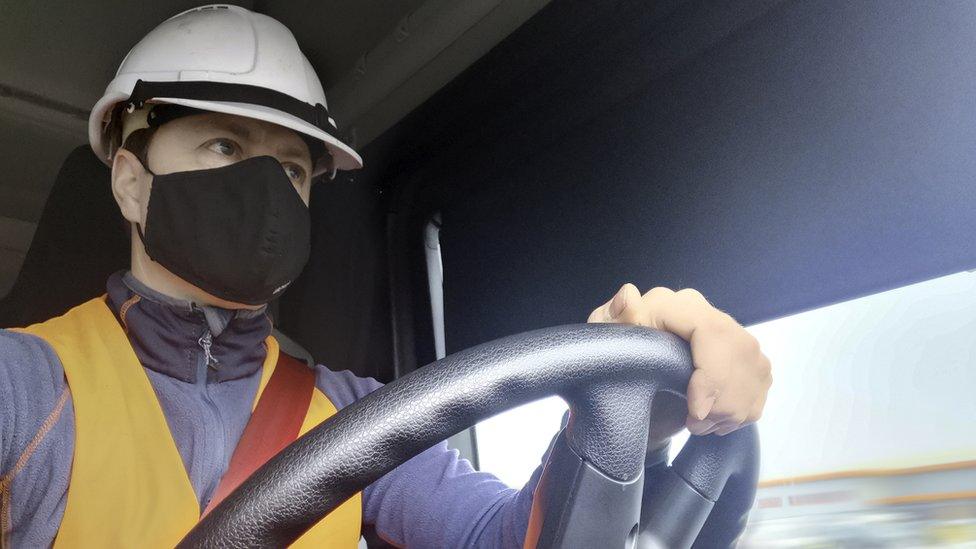Fuel supply: UK suspends competition law to get petrol to forecourts
- Published
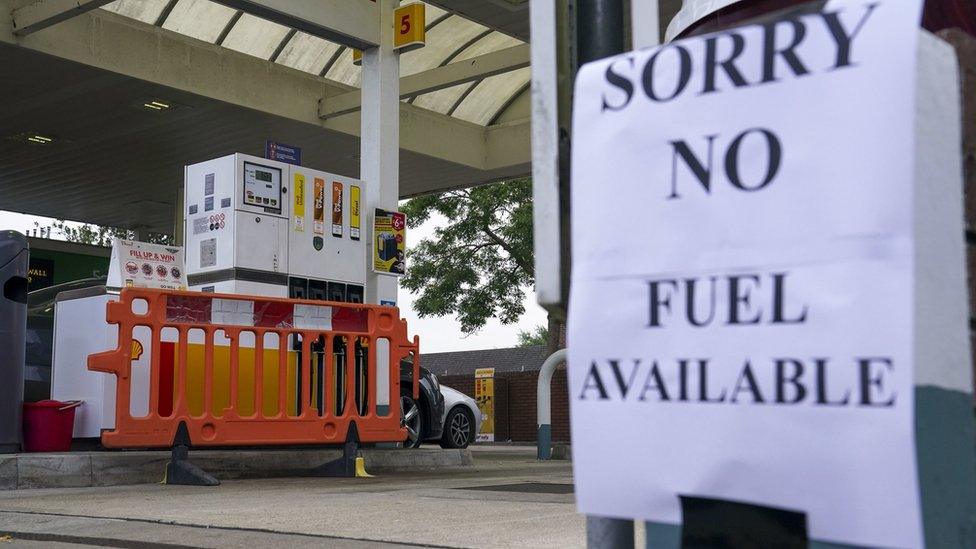
The government is to suspend competition law to allow oil firms to target fuel deliveries at petrol stations following recent panic buying.
Officials said the move would make it easier for companies to share information and prioritise parts of the country most at need.
It follows days of long queues at the pumps, after fears of disruption to the fuel supply sparked panic buying.
But a minister said there were no plans to bring in the Army to drive tankers.
The government has been considering using the Army, but Environment Secretary George Eustice said the shortage of drivers was "not a huge problem".
"The only reason we don't have petrol on forecourts is people are buying petrol when they don't need it," he said, predicting that things would "calm down" once anxious people had filled their cars.
The Petrol Retailers Association has warned that as many as two-thirds of its membership of nearly 5,500 independent outlets are out of fuel, with the rest of them "partly dry and running out soon". The UK has a total of more than 8,000 filling stations.
Announcing the measure to exempt the oil industry from the Competition Act 1998, Business Secretary Kwasi Kwarteng said the government had "long-standing" contingency plans to maintain fuel supplies.
He said allowing the industry to share information would mean companies could work together more effectively to minimise disruption.
The government also relaxed competition law in March 2020, external, to help supermarkets work together to maintain food supplies.

More on the lorry driver shortage

A shortage of lorry drivers has caused problems for a range of industries in recent months, from supermarkets to fast food chains.
In recent days, some fuel deliveries were affected, leading to panic buying and lengthy queues at some petrol stations.
In a joint statement from companies including Shell, ExxonMobil and Greenergy, the industry reiterated that pressures on supply were being caused by "temporary spikes in customer demand - not a national shortage of fuel".
PRA chairman Brian Madderson told the BBC the shortages were down to "panic buying, pure and simple", with oil companies prioritising keeping motorway service station pumps topped up.
Pumps were mainly running dry in Britain's urban areas, while Northern Ireland was currently unaffected, he said.
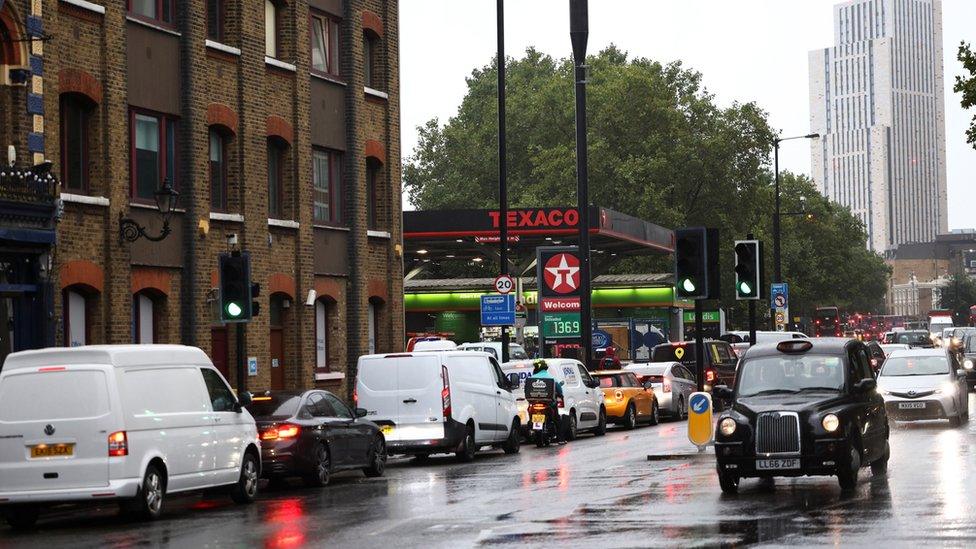
Queues began forming again outside this petrol station on Monday morning
Mr Madderson also told BBC Radio 4's Today programme on Monday that filling stations were being restocked, but there were not enough deliveries to restore their normal levels of fuel.
"One of our members yesterday received a tanker at midday and by late afternoon the entire tanker had disappeared into people's cars," he said.
On Saturday, the government announced it would offer temporary visas, lasting until Christmas Eve, to 5,000 foreign fuel tanker and food lorry drivers and 5,500 poultry workers in a bid to limit disruption in the build up to Christmas.
Other measures include sending nearly one million letters to drivers who hold an HGV licence - to encourage them back into the industry - and plans to train 4,000 people to become HGV drivers.
Grant Shapps: "There is plenty of petrol in the country"
Elizabeth de Jong, director of policy for Logistics UK, told Today that it would be "days, possibly a couple of weeks" before the visa applications were open.
She said the industry had wanted more visas to be available and for a longer time, but she said the key issue now was to make them attractive to drivers, which was likely to mean offering good wages.
The UK had lost 72,000 drivers between the second quarter of 2019 and the same period in 2021, Ms de Jong said - partly due to people returning to the EU after Brexit.
At the same time, she said the pandemic had disrupted testing for HGV licences, making it harder to replace the lost drivers.
The DVLA said there were more than 54,000 applications for licences awaiting processing, although some of those may be renewals and drivers can continue to work while they are dealt with.
The shortage of drivers and other workers is also causing concern in the food and retail industry.
The British Retail Consortium said the number of visas being offered was "too small" to make an impact on the disruption expected at Christmas.

What is competition law?
Competition benefits consumers. It encourages firms to innovate and improve their offer to draw customers in. It can mean products are better, often at lower prices.
It also aims to make sure firms compete on a level playing field, as well as protecting them from other businesses acting unfairly.
It stops businesses from making agreements with each other that would distort competition, leaving customers worse off. Agreeing to fix prices for certain goods or services, limiting production to drive prices up, or carving up markets, for example, could all end up breaking competition law.
That risks serious fines, people being banned from running companies, or even jail.
During the pandemic, the government has intervened to exempt certain industries from elements of competition law. At the height of the coronavirus crisis, for example supermarkets were allowed to share more information with each other on stock levels and share depots and delivery vans, to meet customer demand.
The latest move will allow fuel suppliers to share information on which locations are most in need and, according to the Petrol Retailers Association, possibly put fuel into their competitors' sites - which they would not typically be allowed to do.

Andrew Opie, director of food and sustainability policy at the trade association, told the BBC: "I think we're going to see less choice, less availability, possibly a shorter shelf life as well, which is really disappointing because this could have been averted."
Meanwhile, turkey farmer Kate Martin warned supermarkets could run out of poultry before Christmas.
She said there were fewer turkeys being produced because the big processors "know they will not get them processed".
But the boss of supermarket chain Aldi in the UK said he expected "business as usual" at Christmas.
Recruitment for additional short-term HGV drivers and poultry workers will begin in October, with the visas valid until Christmas Eve.

WHAT WE LEARNED FROM THE OFFICE: Secrets, facts and behind-the-scenes gossip about the beloved British comedy
WHAT TO TAKE TO UNI: The must-haves and easily forgotten essentials for starting university


How have you been affected by the fuel crisis? Share your experiences by emailing haveyoursay@bbc.co.uk, external.
Please include a contact number if you are willing to speak to a BBC journalist. You can also get in touch in the following ways:
WhatsApp: +44 7756 165803
Tweet: @BBC_HaveYourSay, external
Please read our terms & conditions and privacy policy
If you are reading this page and can't see the form you will need to visit the mobile version of the BBC website to submit your question or comment or you can email us at HaveYourSay@bbc.co.uk, external. Please include your name, age and location with any submission.
Related topics
- Published27 September 2021
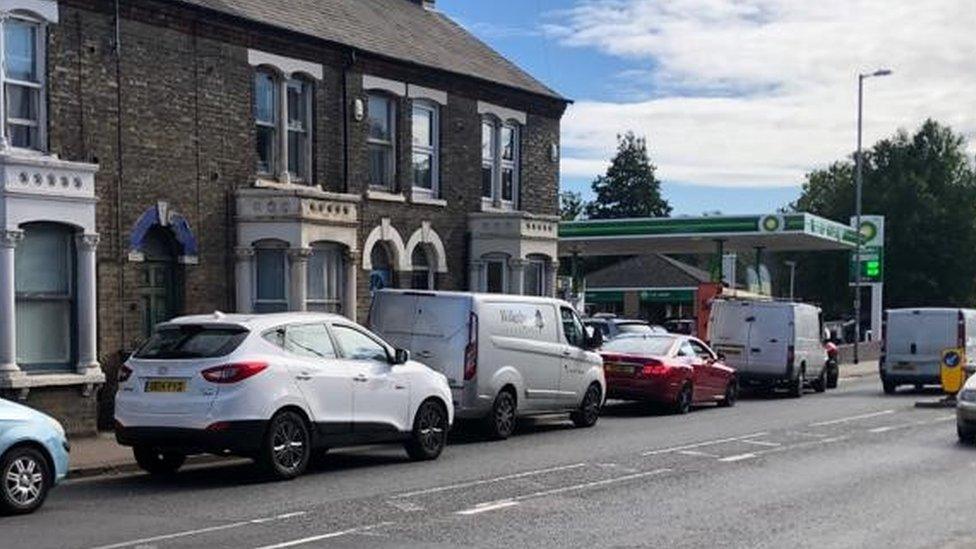
- Published26 September 2021
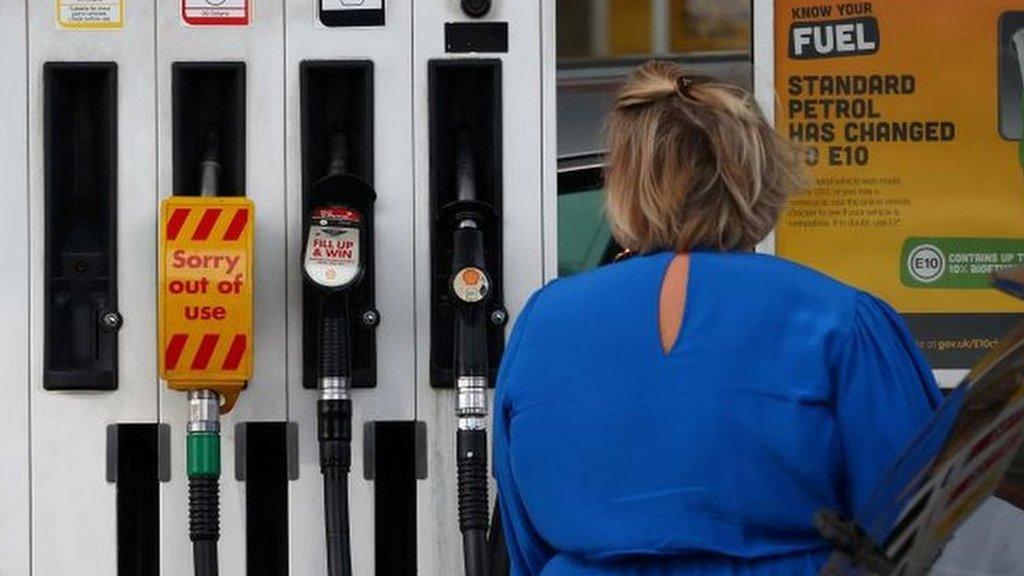
- Published26 September 2021
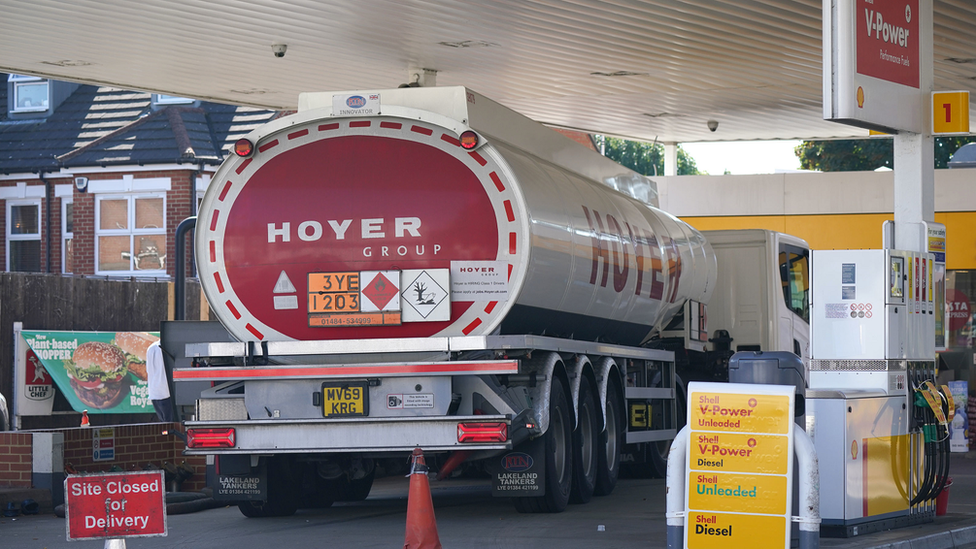
- Published25 September 2021
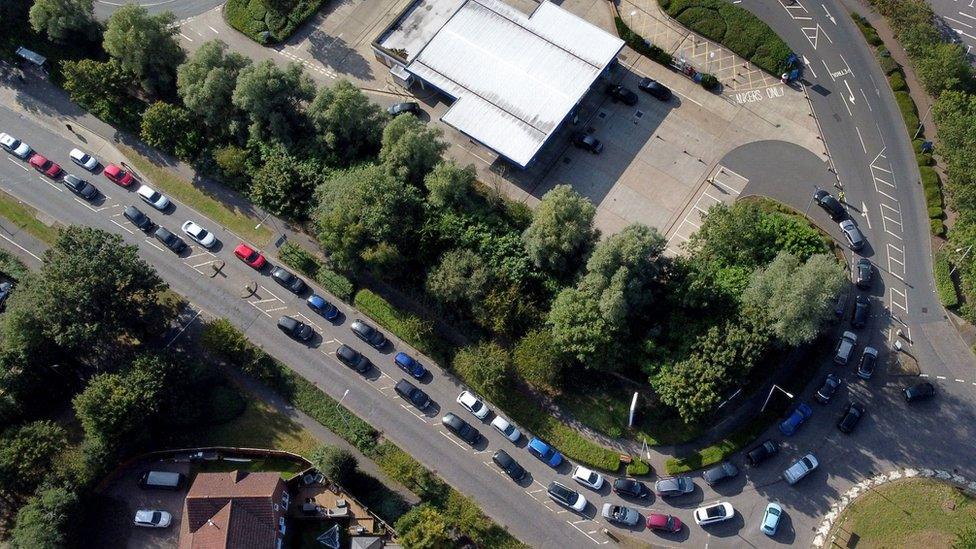
- Published23 September 2021
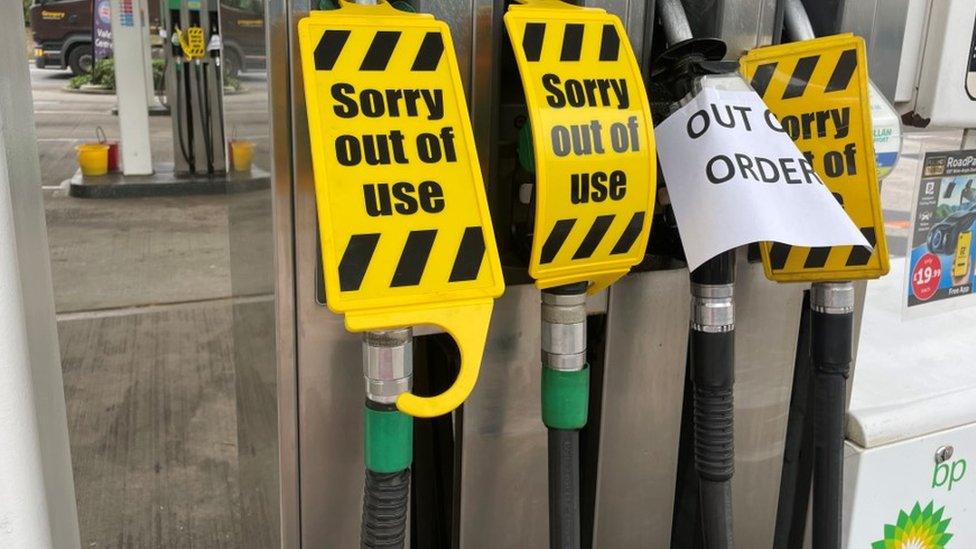
- Published24 August 2021
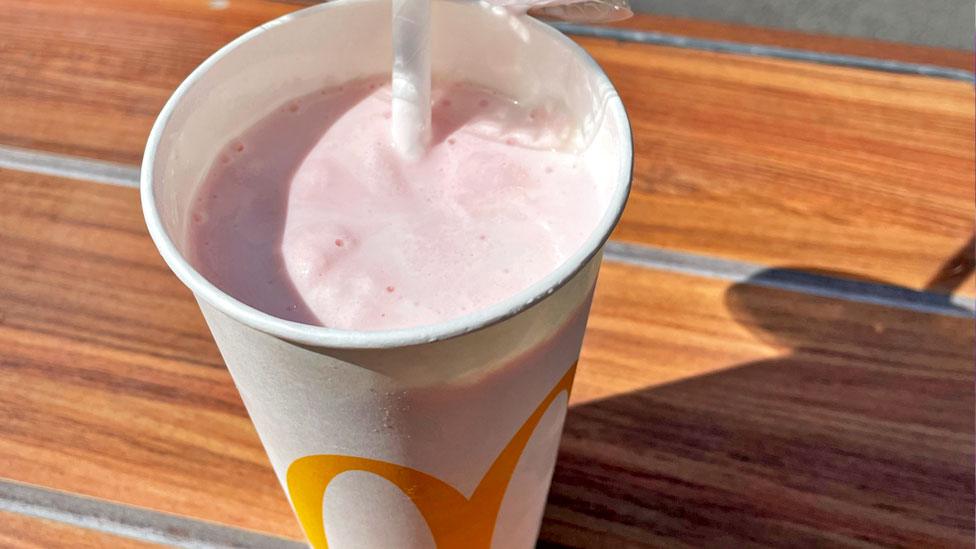
- Published22 August 2021
